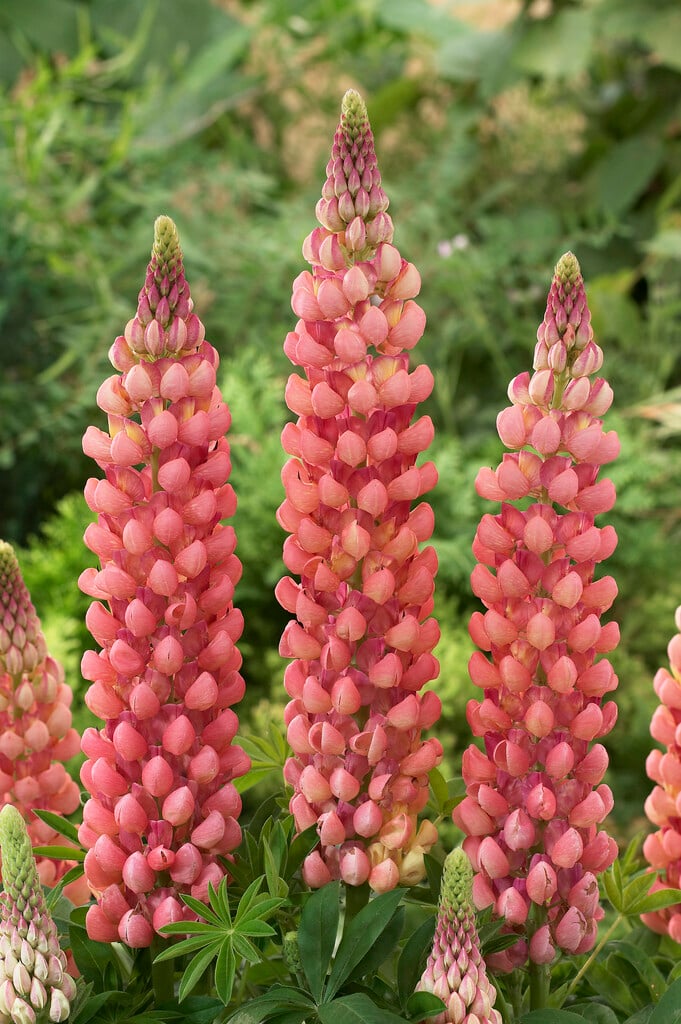Lupinus 'Chameleon'
lupin 'Chameleon'
Clump-forming perennial to 75cm with palmately-divided mid-green leaves. In early to mid-summer produces upright spires of closely packed, unusually coloured flowers about 45cm tall, the buds open yellow with a raspberry pink border along the petals. As the flower opens and matures, the top of the flower cluster is raspberry pink and the lower part yellow, with pale yellow wings flushed pale pink, aging darker pink

Buy this plant
Size
Ultimate height
0.5–1 metresTime to ultimate height
2–5 yearsUltimate spread
0.5–1 metresGrowing conditions
Moisture
Well–drainedpH
Acid, NeutralColour & scent
| Stem | Flower | Foliage | Fruit | |
| Spring | Green | |||
|---|---|---|---|---|
| Summer | Yellow Pink | Green | ||
| Autumn | Green | |||
| Winter |
Position
- Full sun
- Partial shade
Aspect
South–facing or West–facing or East–facing
Exposure
Sheltered Hardiness
H5Botanical details
- Family
- Fabaceae
- Native to GB / Ireland
- No
- Foliage
- Deciduous
- Habit
- Clump forming, Columnar upright
- Potentially harmful
- Harmful if eaten. Wear gloves and other protective equipment when handling. TOXIC to pets if eaten (dogs, cats, rabbits, tortoises) - see the HTA guide to potentially harmful plants for further information and useful contact numbers
- Genus
Lupinus can be annuals, perennials or shrubs, with palmate leaves and showy terminal racemes of pea-like flowers
- Name status
Accepted
How to grow
Cultivation
Grow in light and slightly acid, well-drained or sandy soil in full sun or light shade. May need staking, see staking perennials. Ideal for container cultivation where soil conditions are not suitable. See lupin cultivation
Propagation
Propagate by seed in early to mid-spring or by basal stem cuttings in mid to late spring
Suggested planting locations and garden types
- City and courtyard gardens
- Coastal
- Cottage and informal garden
- Patio and container plants
- Flower borders and beds
Pruning
Deadhead to encourage a second flush of flowers
Pests
May be susceptible to lupin aphid, slugs and snails
Diseases
May be susceptible to lupin anthracnose, powdery mildews and a virus
Get involved
The RHS is the UK’s gardening charity, helping people and plants to grow - nurturing a healthier, happier world, one person and one plant at a time.